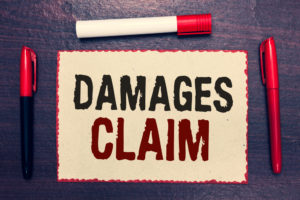
Compensatory Damages
Plaintiffs in negligence cases can receive compensation for economic damages which are tangible expenses such as medical expenses, lost wages, and property damage. Plaintiffs can also receive compensation for non-economic damages which are more subjective and include things such as emotional distress, pain and suffering, and loss of enjoyment of life. These economic and non-economic damages are called “compensatory damages” because they are designed to compensate the plaintiff for their losses.
Punitive Damages
In some rare cases, wrongdoers are asked to pay an injured plaintiff a sum of money that isn’t calculated based on the economic or noneconomic harm or costs sustained by the injured party. These sums are known as “punitive damages.” The purpose of punitive damages is to punish the wrongdoer for egregious conduct and to make an example of the wrongdoer in order to deter others from engaging in the same types of acts.
Punitive damages are not awarded in every case and are not designed to compensate a plaintiff for any loss. Punitive damages go beyond negligence or carelessness and are reserved for situations where a defendant was so reckless that they demonstrated a high disregard for the consequences of his or her actions. Conduct that is intentional, willful, or deliberate and causes harm may be the basis for an award of punitive damages.
Because they are not compensating the plaintiff for a particular loss, punitive damages are a windfall to a plaintiff and leave the plaintiff in a better position than they were in before their injury.
Examples of Punitive Damages
Although they are rarely awarded, some examples of cases of willful action and reckless indifference where punitive damages may be awarded:
- Against a doctor who destroyed and altered evidencein a medical malpractice case to evade liability
- A drunk driverwho causes serious injury in an accident
- A product liability case where a corporation chose to keep a dangerous product on the market despite knowing that it was defective and could cause serious injury
Contact an Experienced Attorney
If you’ve been injured due to someone’s negligence, you should have an experienced attorney evaluate your case. At Bonina & Bonina, P.C., we have over 50 years of experience helping injured New Yorkers. Contact us onlineor call us at 1-888-MEDLAW1 to schedule your free consultation. Home and hospital visits are available. Se habla español.
